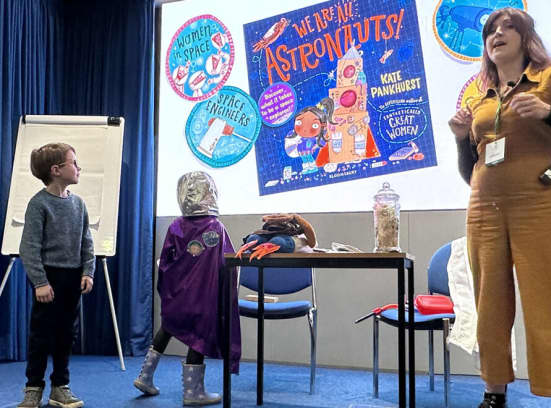Animal Theologians, by Directors of the Oxford Centre for Animal Ethics, Reverend Professor Andrew Linzey and Dr Clair Linzey, is a new book which looks at the relationship between religion and animals.
Famous thinkers including John Wesley, Leo Tolstoy and Mohandas K Gandhi, have thought about the relationship between the God and animals, and in Animal Theologians the editors have brought together Jewish, Unitarian, Christian, transcendentalist, Muslim, Hindu, Dissenting, deist and Quaker voices, all offering unique theological perspectives that reverse the neglect of non-human animals.
The following extract has been reproduced with kind permission from Oxford University Press.
From the Introduction to Animal Theologians, edited by Andrew Linzey and Clair Linzey, published by Oxford University Press.
We define theology as an understanding of the inner logic of a faith position. Theology in this sense must be sharply distinguished from knowledge of religion per se or the study of religion itself. Regrettably, many university departments of theology have now changed their names, to become departments of religion or religious studies, or have supplemented the word “theology” with one of these other appellations (including, sadly, what is now the Faculty of Theology and Religion at the University of Oxford). But there is a difference between knowing about and understanding of. The psychology, the sociology, the philosophy, and the history of religion are all excellent fields of study and can be useful adjuncts to study of theology. They can illuminate theological positions and help us to contextualize them. But they are not theology. And neither do they by themselves fulfill the aim of theology, which is an understanding of its inner logic. There can be Jewish, Muslim, Hindu, and Christian theologies (to name but a few), but the aim should always be the same—not just to know about the faith position, but to grasp the inner logia of it.
When at least 85 percent of the world’s population is religious, understanding how people believe, practice, and live within religious traditions is a tremendously important goal if we want genuine intercultural and interfaith dialogue. It is difficult to see how there can be any possibility of overcoming conflict and mutual antagonisms and establishing enduring mutuality without that understanding. Theology, then, as we see it, is a much more demanding undertaking and far more important than is commonly supposed. It does not of itself require a religious belief (as many have previously supposed), but it does require people who can think beyond familiar boundaries and be open to insight into new layers of meaning and value in the world.
Why should theo-logic be concerned with animals? Rather obviously, if God is by definition the Creator of all things, it follows that animals are fellow creatures. Humans are not God. It follows that we do not own other creatures, and they do not belong to us. It also necessarily follows that their worth and value to God is an entirely separate thing from their worth and value to human beings. It is difficult to imagine that God would create millions of species but care for only one of them. The key point is that a true theo-logia must be able to provide a full account of the worth and value of creation, including and in particular fellow creatures, in order to be what it claims to be.
Perhaps the bigger and more important question, then, is why have these elementary but fundamental insights been lost in many, if not most, expositions of theo-logic? They haven’t been entirely lost, of course. While religious traditions are often characterised by forgetting, it is also true that remembering can be a source of further enlightenment. Perhaps that is why tradition may be characterised as the seedbed of creativity.
But there is no way to get around the general point that theistic traditions have been largely anthropocentric. Karl Barth writes that “in practice the doctrine of creation means anthropology—the doctrine of man.” Later, Barth writes, “He who in the biblical message is called God is obviously not interested in the totality of things and beings created by Him, nor in specific beings within this totality, but in man.” Hinduism is an exception to this anthropocentrism, of course, as are non-theistic traditions such as Buddhism and Jainism, but Christianity, which centres on the doctrine of the incarnation, has always been particularly susceptible to the charge of anthropocentrism. The concentration on humanity in most theistic traditions always carries with it the danger of idolatry—that is, of presuming that the needs and wants of human beings are the primary, or even the exclusive, concern of the Creator. Ludwig Feuerbach famously argued that Christianity is nothing other than the self-aggrandizement, even deification, of the human species.
It follows even from this briefest of sketches that theology has a distinctive contribution to make to animal ethics. In the words attributed to Hans von Baltasaar, “the whole point of creation is for us to know that we are not Creator.” Because we are not God, there has to be a limit to what we can justifiably do to animals or the use we can make of them. Human interest, however vital or important, cannot be the sole basis on which we judge the morality of our relations with other creatures. The big issue always is whether God’s own interest as Creator is being properly reflected in what humans do with what God has created.
------------------------------------------
The Revd Professor Andrew Linzey is Director of the Oxford Centre for Animal Ethics. He has held the world’s first post in theology and animals in the University of Oxford and has been a member of the Faculty of Theology at the University of Oxford for 28 years. Dr Clair Linzey is the Frances Power Cobbe Professor of Animal Theology at the Graduate Theological Foundation as well as being Deputy Director of the Oxford Centre for Animal Ethics.
The Oxford Centre for Animal Ethics is an independent centre pioneering ethical perspectives on animals through academic research, teaching, and publication. The Centre comprises more than 100 academic Fellows. oxfordanimalethics.com
Animal Theologians, Oxford University Press 2023 is available from various booksellers including amazon.co.uk, £25








